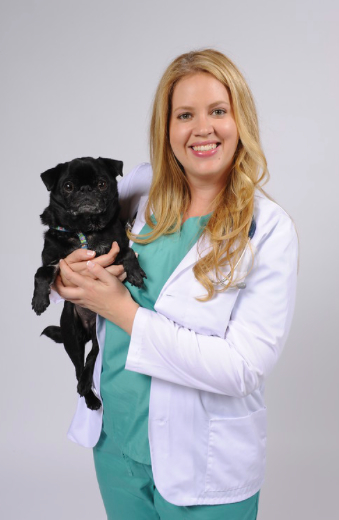Many dogs can weigh up to 150 pounds or more. These dogs have specific health issues and care recommendations. The largest breed dogs include the Great Dane, Mastiff, Newfoundland, Saint Bernard, Leonberger, Bernese and Swiss Mountain Dogs, and the Irish Wolfhound. Many mixed breed dogs and Shepherds can also become very large.
Large and giant breed dogs are prone to getting a variety of orthopedic conditions, such as hip dysplasia and arthritis, even at an early age and are susceptible to stomach bloat.
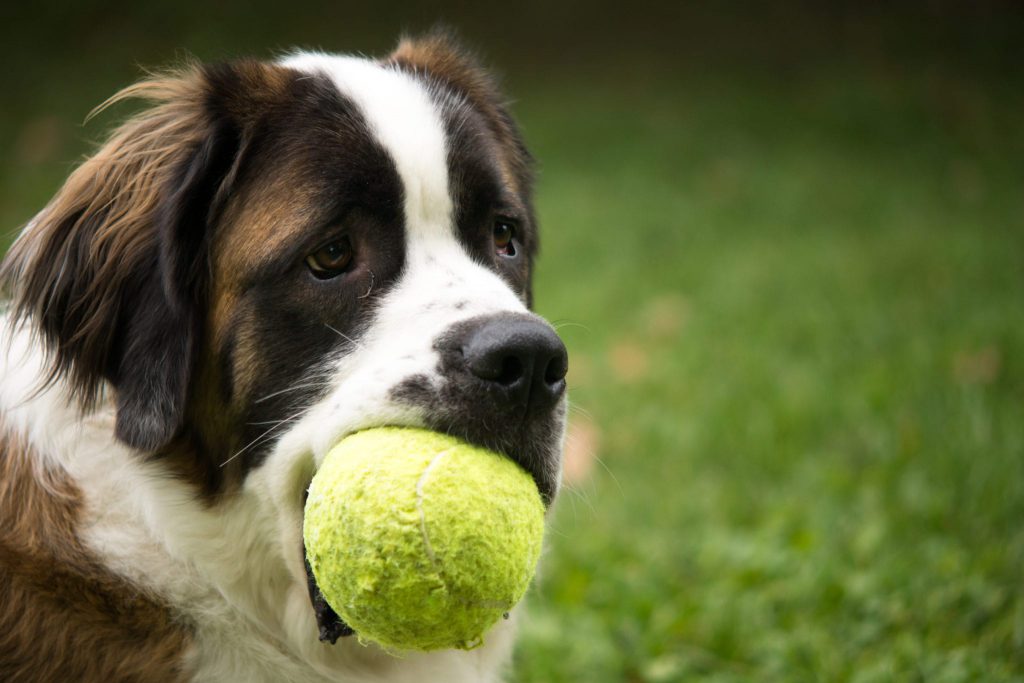
Here are some recommendations to caring for large and giant breed dogs.
1. Protect their joints with proper nutrition and supplements
-
- Products containing fish oils, glucosamine and chondroitin have been shown to prevent or slow down the progression of orthopedic conditions by protecting joints
- Fish oil: Products containing Omega-3 and Omega-6 fatty acids can be started for dogs of any age, including puppies to protect their joints and should be continued life long
- Glucosamine/chondroitin: Start at 12 months of age and continue life long
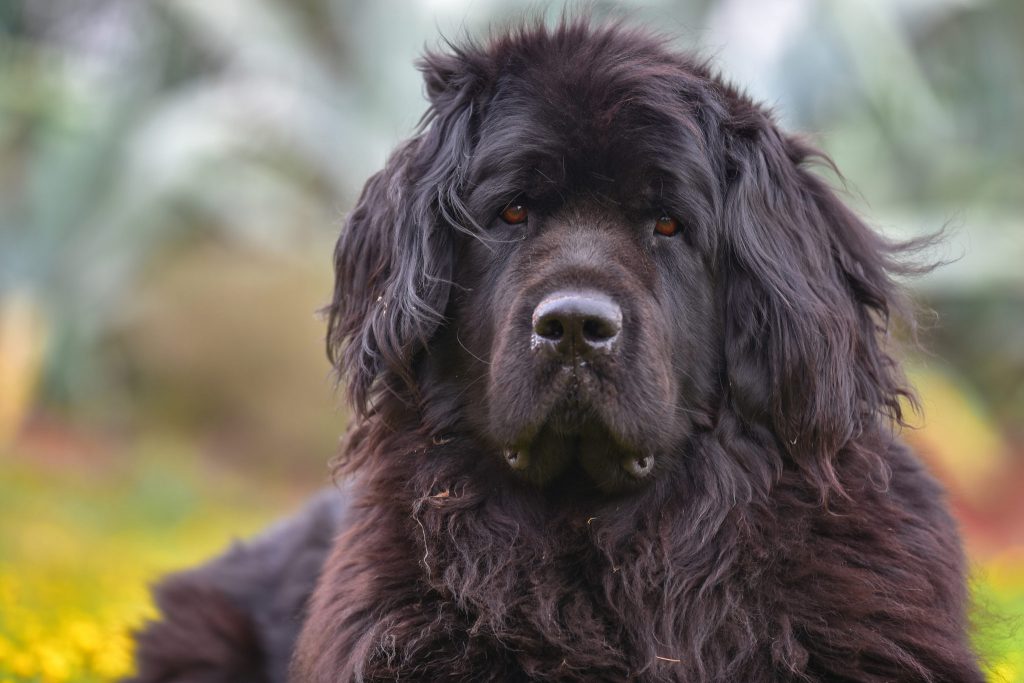
2. Promote general good health through appropriate nutrition during growth and development
-
- Large breed puppy formulas should be used for dogs expecting to weigh 50 pounds or more
- These diets have levels of calcium and calories for the specific needs of large breed dogs
- The most commonly recommended brands by veterinarians are ones that are certified by AAFCO (Association of American Feed Control Officials)
- Do not allow your puppy to become overweight as this can increase their chances of orthopedic disease when older and decrease their lifespan
- Feed large breed puppies three times daily
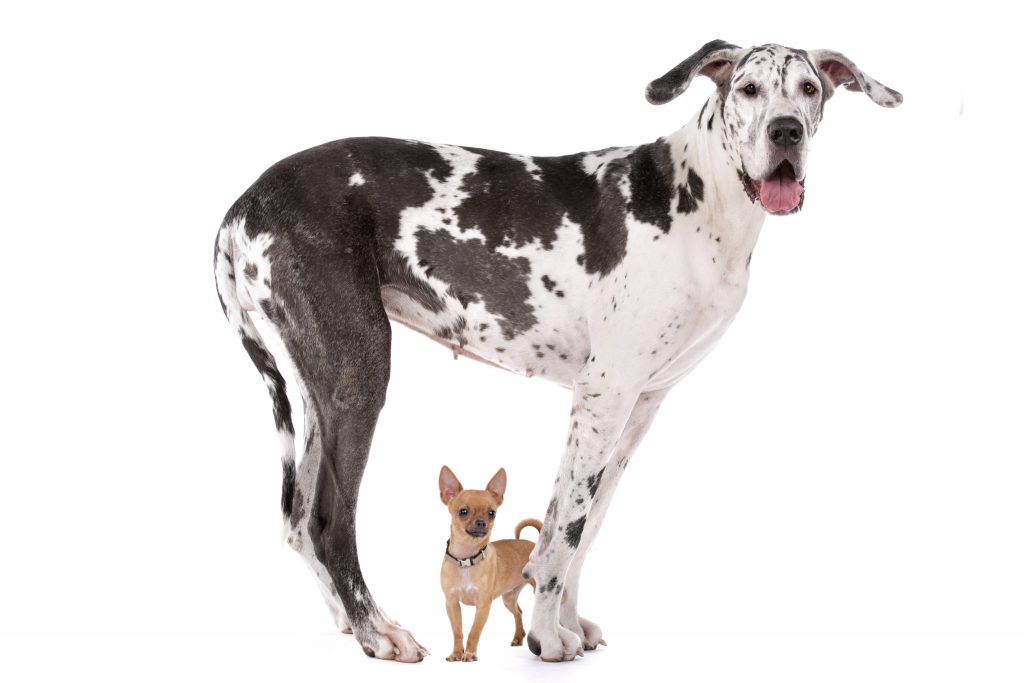
3. Adult nutrition
-
- Feed adult dogs at least twice daily
- Feed a small amount of canned food with dry food
- Use a raised feed bowl
- Do not allow your dog to eat rapidly, which may mean providing a portion of the meal at a time
- Avoid feeding a dry food diet with fat as one of its first 4 ingredients
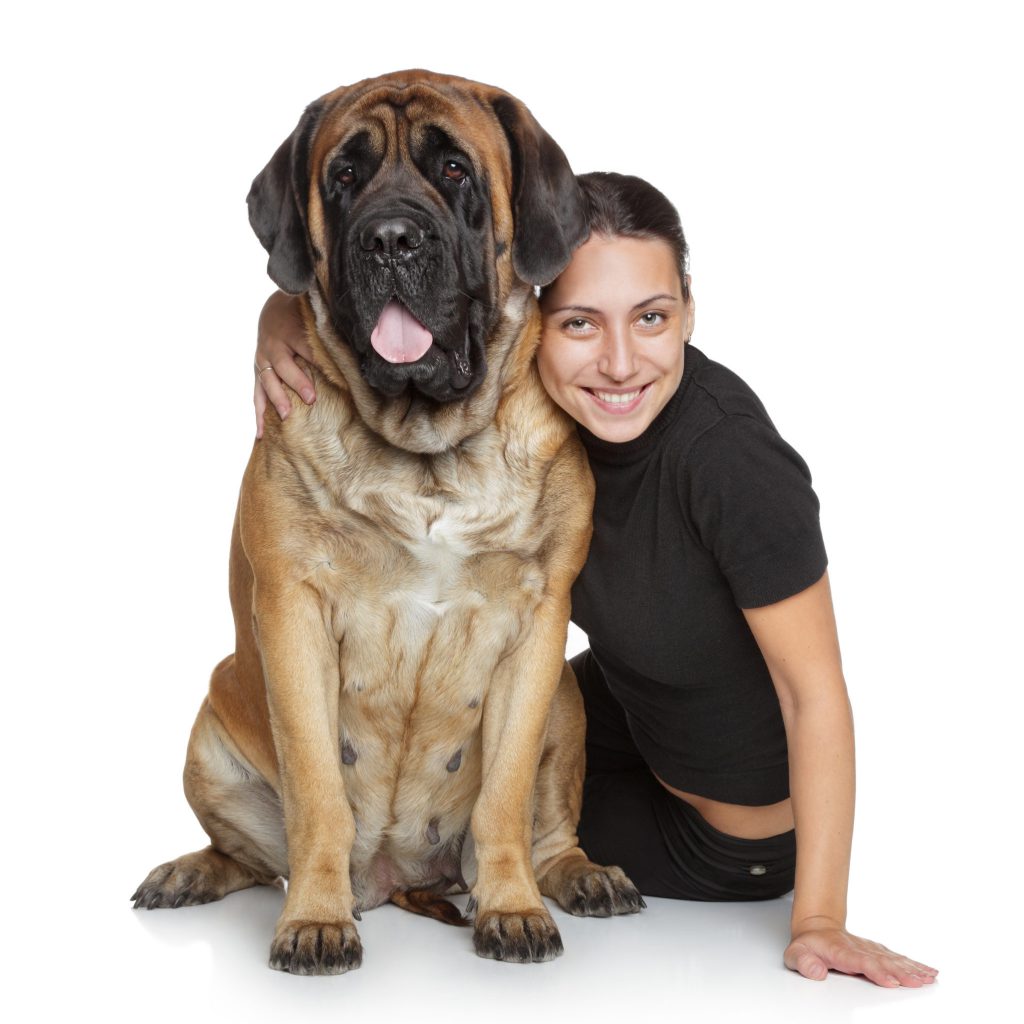
4. “Bloat” or GDV (Gastric Dilatation and Volvulus) is the most common life-threatening condition in large breed dogs
-
- This is a serious condition that occurs almost only in large and giant breed dogs, especially purebred males over the age of 5
- For example, 42% of Great Danes will suffer from GDV during their lifetime
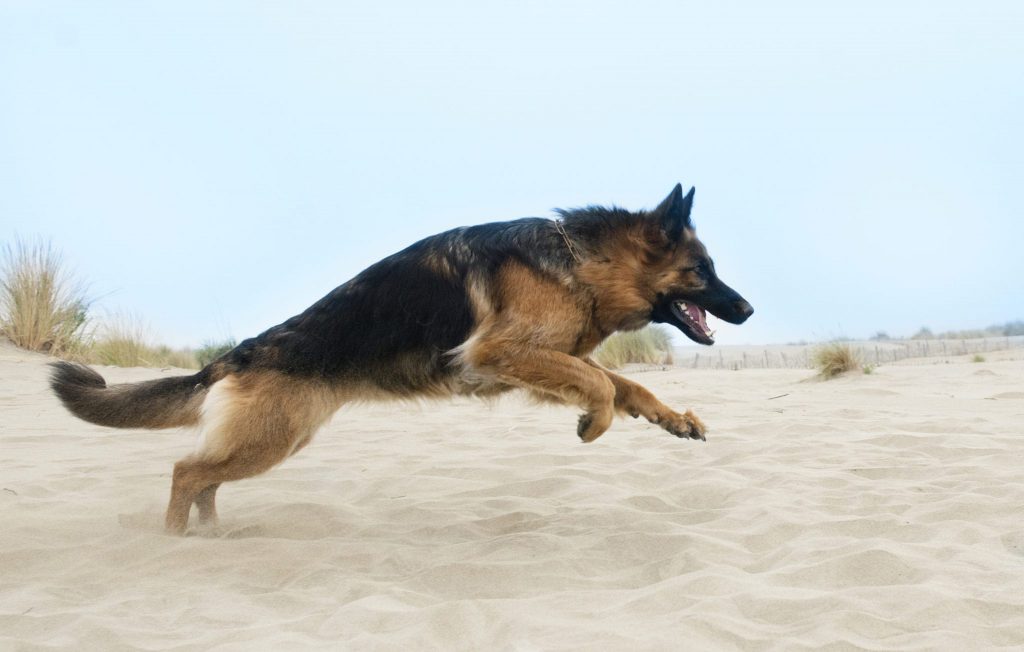
-
- The specific cause is unknown and its onset is unpredictable. The stomach fills with too much gas, fluid or food leading to rotation of the stomach.
- Bloat can cause serious damage to internal organs, particularly the spleen and compresses major blood vessels leading to potentially fatal heart problems and other organ failure
- Treatment is expensive and emergency surgery is required.
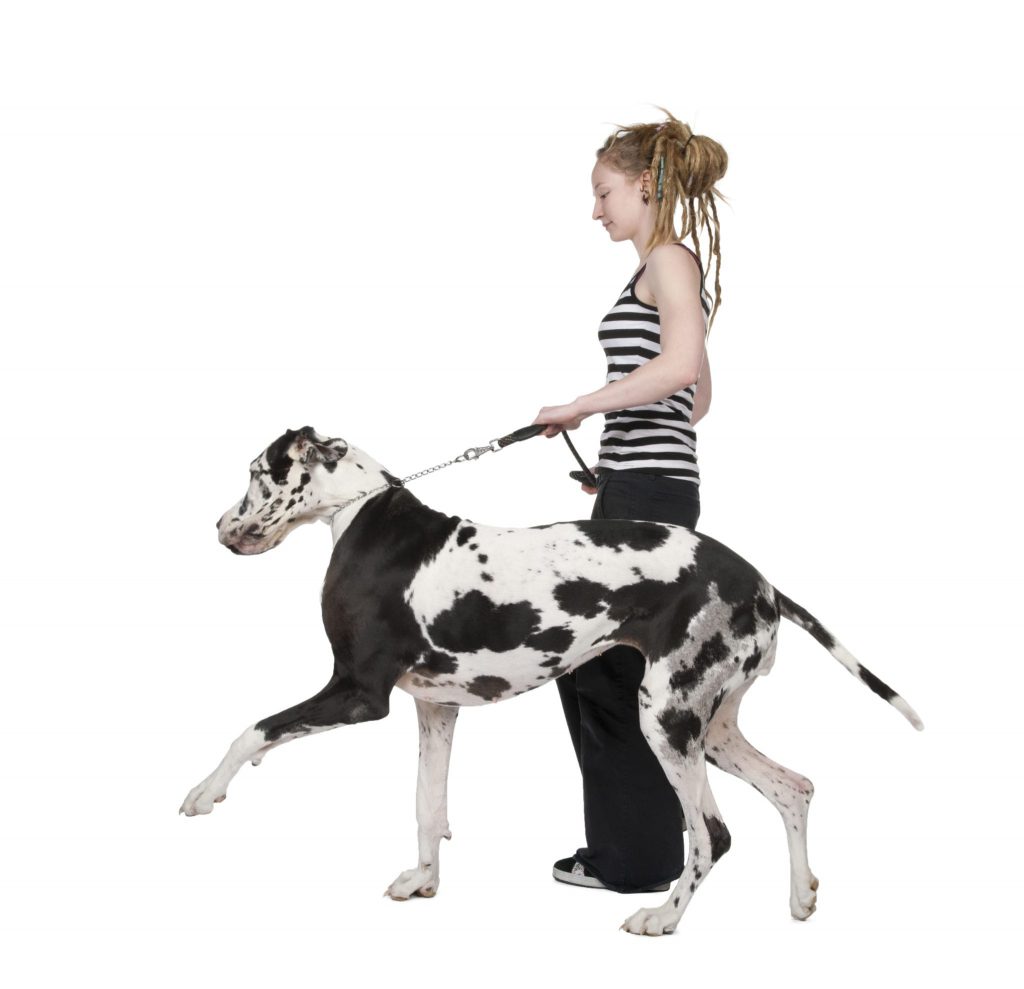
-
- Don’t hesitate to take your dog to a vet if you suspect bloat (excessive drooling, swollen stomach, restlessness, gagging)
- Preventative surgery (prophylactic gastropexy) can decrease the chances of GDV
- This is a valuable tool that should be performed at the time of spay or neutering dogs who are at risk
- Follow the adult nutrition recommendations above to decrease the likelihood of GDV
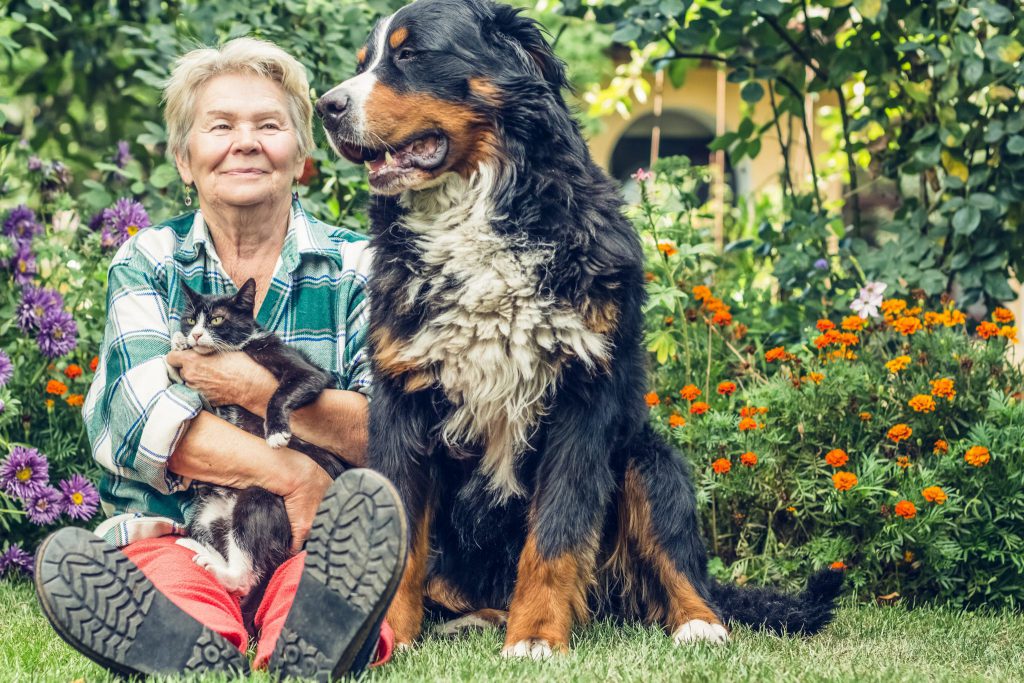
5. Age to spay or neuter large breed dogs
-
- Studies have shown that waiting until 12 months of age can help decrease the likelihood of orthopedic conditions in large and giant breed dogs
- Discuss with your veterinarian the pros and cons of waiting until 12 months of age
- Behavior of the individual dog, house training and aggression can also be issues. If spay or neuter is delayed to the age of 12 months, this this has to be a careful decision made with your veterinarian
- Spaying female dogs before their first heat cycle (at the age of 6-7 months) decreases their likelihood of developing mammary (breast) cancer
- Small to medium sized dogs, those who are aggressive or too hyper should be spayed or neutered around the age of 6-7 months
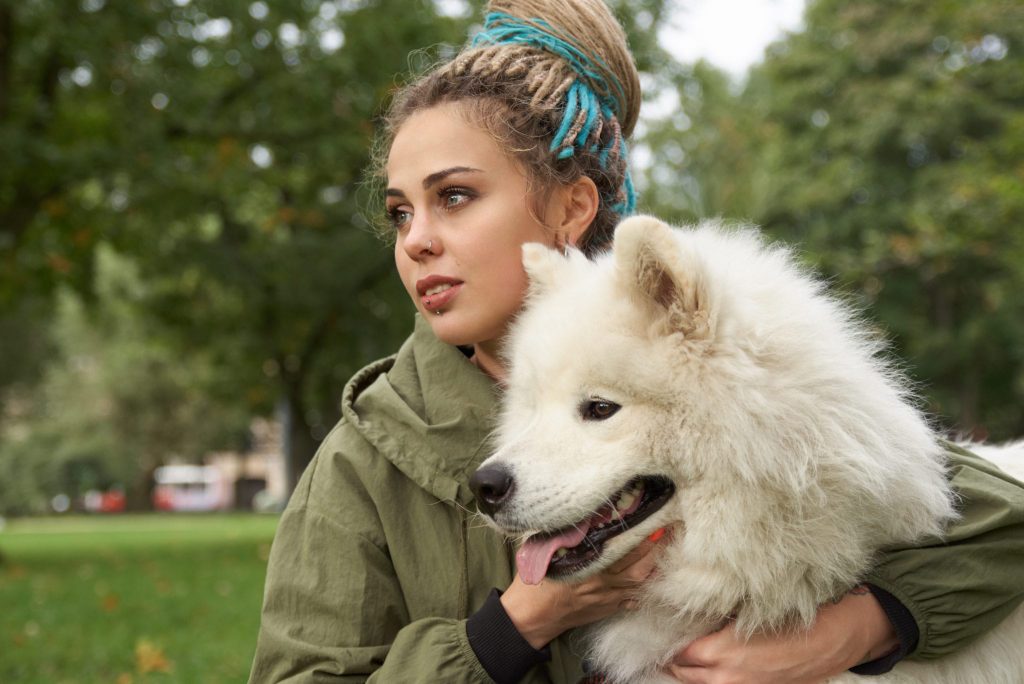
You can buy our vet prescribed supplements here:
Resources:
- Beale, Brian. “Diagnosis and Treatment Options for the Puppy with Hip Dysplasia”. Wild West Veterinary Conference. Veterinary Information Network. 2016.
- Beale BS. Use of nutraceuticals and chondropro- tectants in osteoarthritic dogs and cats. Vet Clin North Am Small Anim Pract 2004; 34: 271-289
- Cave, Nick. “Nutrition and Joint Health”. Small Animal Veterinary Association World Conference Proceeding. Veterinary Information Network. 2013.
- Ettinger, Stephen J, Edward C Feldman, Bauer, John E. “Nutraceuticals.” Textbook of Veterinary Internal Medicine, 6th ed., Saunders Elsevier, 2010.
- Goh, Clara S. “Age of Neutering in Large- & Giant-Breed Dogs”. Clinicians Brief. August 2016; (14)8. 18-23.
- “Guidelines for a Lifetime of Health Care and Nutrition, Helpful Measurements”. Iams Company Proceedings. Veterinary Information Network. 2003.
- Heinze, Callin R. “Nutritional Support/Prevention of Orthopedic Disease”. Central Veterinary Conference. Veterinary Information Network. 2013.
- Miller, Kirk. “The Spay/Neuter Debate: When, Why, What if….”. Atlantic Coast Veterinary Conference. Veterinary Information Network. 2017.
- “Other Drugs Used to Treat Pain.” Handbook of Veterinary Pain Management, by James S. Gaynor and William W. Muir, 2nd ed., Elsevier, 2015.
- Vandeweerd JM, Coisnon C, Clegg P, et al. System- atic review of efficacy of nutraceuticals to alleviate clinical signs of osteoarthritis. J Vet Intern Med 2012; 26: 448–456.
- Waldron, Don R. “Gastropexy in GDV Patients: Therapeutic and Prophylactic”. Atlantic Coast Veterinary Conference. Veterinary Information Network. 2007.
